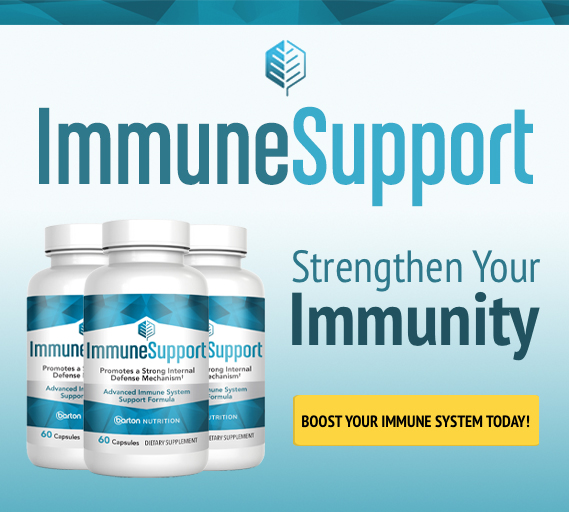The Truth about Immunotherapy
Clinical Trial Statistics
I would like to share a few stories about cancer. This is a very heartfelt topic to me for many reasons. As a doctor, I have sat with many patients to tell them they have incurable cancer. “THE BIG C” they call it. I have also treated many who were going through chemotherapy and radiation therapy. I follow them through surgery. And I have to deal with all the repercussions because I’m their “primary care doctor.” Oncologists, surgeons, and radiation oncologists treat, and then send the patients back to me. This is hard work. But it has hit me even closer to home.
Soon after the turn of the millennium, my best friend called me with a shock. He was diagnosed with cancer – a brain tumor, lymphoma. I flew to his side that week, and we started researching the best ways to treat this. After finding some promising cancer treatments, I went with him to his oncology appointment at the brand-new Huntsman Cancer Institute. Mr. Huntsman had donated millions of dollars to build a state-of-the-art cancer center at the University of Utah medical school. This was supposed to be the best in the industry.
The oncologist was very nice. But when we asked for her opinion on the cancer treatments we had found, she had none. She was unaware of any of them. I asked her what she recommended. “MOPP therapy and radiation” she succinctly stated. I knew this didn’t work ten years before when I was in medical school… and it isn’t used today at all.
After five years of chemotherapy, radiation, remission, recurrence, and a bone marrow transplant, Eddy finally succumbed to the treatment. I still miss him. I have come to know, first hand, and on many different levels, what Dr. Allen Levin, MD meant when he said about cancer:
“The majority of the cancer patients in this country die because of chemotherapy, which does not cure breast, colon or lung cancer. This has been documented for over a decade and nevertheless doctors still utilize chemotherapy to fight these tumors.”[1]
Nothing has changed in the 25 years since then. Physicians like me are told what to do. We don’t get to use our own judgment, especially in the case of cancer. In fact, an oncologist who does not recommend the current fad in chemotherapy is ostracized. For this reason, oncologists push very hard for their patients to get chemotherapy. Over twenty years ago, Dr. Braverman explained the belief system of oncologists.
“Many oncologists recommend chemotherapy for almost any type of cancer, with a faith that is unshaken by the almost constant failures.”[2]
Nothing has changed since then. However, when it comes to treating themselves, the story is very different. A study from McGill University included a survey of lung cancer specialists. Of those, 64 of the 79 said they would not use a common chemotherapy, or several experimental cancer treatments, due to ineffectiveness and toxicity.[3]
Because of the research and knowledge available online, patients are starting to be as wise as oncologists and refusing chemotherapy.
Now there is a new fad: immune therapy.
Immunotherapy Statistics
In 2014 a press-release from the National Cancer Institute, a Federal Government Agency, made headlines:
“NIH study demonstrates that a new cancer immunotherapy method could be effective against a wide range of cancers.”[4]
But what did the study really show? The bottom-line is that the results are very similar to chemotherapy agents.
The current study that people are getting excited about is one that used two drugs for malignant melanoma. But first, the natural course of metastatic melanoma if left untreated looks like this:
Patients at stage M1c (unresectable metastatic melanoma) without treatment:[5]
- The median overall survival: 5.1 months
- 1 year survival: 22.3%
The study for these two immunotherapy drugs on 945 people with unresectable metastatic melanoma looked like this:[6]
- Median progression-free survival was 11.5 months for patients taking both therapies.
At one year, the group looked like this:
- 425 patients stopped taking the drugs because they had disease progression.
- 194 patients stopped because the drugs were too toxic.
- 285 patients died during the one year study (1-year survival: 69.8%).
Over half (55%) of the patients taking both drugs had serious adverse events.
About 1/3 (36%) of patients had to discontinue cancer treatment because of adverse events.
There were no drug related deaths reported for the combo cancer therapy group.
Bottom-line for the group selected for this study:
Median survival was more than twice as long as expected. Comparing overall survival to “progression-free” survival makes the immunotherapy look significantly better than doing nothing.
Those surviving at one year were significantly more than expected.
However, looking at the raw numbers we are left with the same issues as with other forms of chemotherapy.
- Toxicity – a lot of people dropped out.
- It’s not a cure, allowing maybe a few months of “survival” without considering quality of life.
The use of toxic treatments centers on statistics, which do not apply to any single individual. Instead of looking for the optimal treatment for each cancer patient, a percentage is given. The percentage number represents the odds of surviving the cancer, versus the odds of surviving the cancer treatment.
If you’re wondering what a doctor would do, then consider a friend of mine, Dr. Bob Young.
The Merciful End
Seven years ago, a local physical contacted me and asked me to help him in his office. He had been diagnosed with pancreatic cancer and was using several natural treatments. But he needed help with his patients in the office. I came in to help several days per week.
As he continued to decline, it seemed that he would be unable to return to his practice. So he asked if I would take over his patients, which I agreed to do. When I went to his house to sign papers, we sat at the kitchen table. He turned and said to me, “Cancer has been the greatest gift for me.” Of course, he had my full attention.
“These past two years since I have been diagnosed with cancer, I have been able to wrap-up my life. I have repaired a relationship with my daughter, I have taken care of my wife financially, I have finished all my business ventures, and now, finally, I’m signing the papers to take care of all the patients I have nurtured for over twenty years. I’m done.”
He died two weeks later.
The issue wasn’t about him. He wasn’t grasping at straws to try to gain a few more days of life, rather he was looking to those around him. He refused surgery, radiation and chemotherapy, yet he survived a lot longer than those who submit to these methods. He was using natural treatments to maintain his strength. He had dealt with death many times in his life, and knew the end comes for all. He felt fortunate that he didn’t die suddenly, but was able to tie up all the loose ends of his life before moving on. He was ready. This was a merciful end.
A Whole New Medicine
However, consider another doctor who opted out of chemotherapy for a curable cancer, and founded a whole new system of treatment.
Twenty years ago, Dr. Ryke Geerd Hamer, a German doctor with his own practice in Rome, Italy, received a call in the middle of the night. His 17-year old son had been shot while on holiday in the Mediterranean. Three months later, his son Dirk died. Shortly after, Dr. Hamer, who had been healthy all his life but utterly devastated by this catastrophe, found he had testicular cancer. Rather suspicious about this coincidence, he set about doing research on the personal histories of cancer patients to see whether they had suffered some shock, distress or trauma before their illness.[7]
Dr. Hamer spent some time to deal with the shock of the loss of his son, and cured himself of testicular cancer. Since that time, he has written many books and articles about the emotional and mental contributions to cancer, and how to overcome them to reverse the disease. He has many clients who can attest to this.
The list of ways for dealing with a cancer diagnosis can go on and on. We don’t know in advance what will happen to us. But we can respond well if we don’t act out of fear, looking instead for what is best for us. Patients need to take responsibility, and not just give in to the latest fad, be it chemotherapy, or vitamin C. We may seek healing, or not. We may use chemotherapy, or not. It is most important to look at the risks versus the benefits of any treatment.
I commonly find cancer patients doing everything out of fear of death. I have had so many patients with cancer reading about everybody’s cancer cure, and doing all of them at the same time. I have not seen this approach work. Some need to feel like they are doing something; but the things they choose aren’t often effective.
Individualized Cancer Treatment
What if we seek for individual causes of cancer and treat each person independently? What would that look like?
The primary way to deal with cancer is by building the immune system. There are several important steps to doing this – the same ones we all have to consider with any disease.
- Good nutrition: Get as much of your nutrition from food as possible, take supplements when needed.
- Supplements everyone should take to prevent and treat cancer:
- Selenium: 200 mcg per day for 90 days, then one per week
- Vitamin D3: 50,000 IU per week
- Iodine: 12.5 mg per week
- Intermittent fasting: The key is to have an empty stomach. You could do 12-hour fasts every day, or fast for several days in a month. Many years of research have proven the benefits of this.[8]
- Stress reduction:
- Exercise 30 minutes per day.
- Write in a journal every day.
- Forgive everyone of everything, no matter what it is.
- Love and serve others, making connections with people.
- Meditate/pray at least 30 minutes per day.
- Be happy, be positive, and look for the good in everything.
I am often asked what I would do if I were diagnosed with cancer. The reality is, I don’t know, because I’m not really faced with it. However, knowing what I know, I think I would do all of the things above for building the immune system. I would avoid chemotherapy and radiation therapy, unless there were some compelling reasons that the benefits outweighed the risks. I would do as much as I could to live my life, and not get bogged-down in self-treatment and self-pity. I would not let the cancer run my life. I would continue to live as if I were going to live forever!
The diagnosis of cancer can be a very scary experience. For some it is a wake-up call to make changes in their lives and heal the body and spirit. For others it is a blessing to put their affairs in order before leaving this life. And for still others it is a learning experience that they can share with others. No matter which, it isn’t easy. The key is to find what is best for your unique situation and pursue it with vigor!
If you liked this article, then you’ll love these:
- The Food and Migraine Connection
- Choosing Cancer Treatment: Natural or Conventional?
- 7 Ways to Prevent Cancer



























